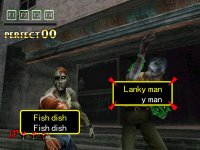Getting Serious About Games

All games are supposed to be fun. But some games are also designed to teach something, whether it's how to kill and be killed for Uncle Sam in America's Army, or how to be a good capitalist and get paid in Lemonade Stand. These so-called serious games get a good overview in the form of a roundtable discussion in the September 2006 issue of Harper's. In an article called "Grand Theft Education: Literacy in the Age of Video Games," some teachers, writers, and game-world luminaries like Raph Koster and Steven Johnson discuss how games might teach reading and writing. It's got it's crazy bits, but over all it is a good introduction to a more intellectual side of gaming.
Take your medicine after the jump.
The article is not online yet, so I'll just pull out a few of the more interesting bits. The panelists start talking about the easy stuff: how games can teach grammar, spelling, and the like. As Harper's editor and discussion moderator Bill Wasik notes, "Rote learning is where video games would naturally excell." I was glad to see Koster, game designer and author of A Theory of Fun, give a nod to Typing of the Dead, the most ill typing tutor ever.
Koster says one thing games can bring to pedagogy is the concept of a "magic circle," a space in which play and experiment is encouraged and the pressure to succeed is reduced. The goal would be to make it clear that failure was okay, because learners would be working in a game world, not the real world.
Yet all participants acknowledge that games have a harder time teaching things like argument and plot. Koster and Johnson suggest that writing game FAQs and guides is one way games can teach logical, sequential thinking, but obviously this is somewhat outside of games proper.
Games also suffer compared to literature in teaching things like plot construction. Yet I was suprised and happy to see a very keyed-in teacher named Jane Avrich from St. Ann's School in Brooklyn bring up Indigo Prophecy as a game that might teach narrative structures in terms of a writer's (and story character's) choices.
But, as Koster points out, many "games aren't trying to teach you to assemble stories; they're trying to give you the story experience." He adds that games have trouble with complex story elements. "All nuance is lost in games," he says, because games depend so much on plot over something like rich characterization. Fair enough point. But Johnson throws out the baby when he states, "I doubt that video games are capable of dealing with psychological depth at all." What? Check out my recent post on stories in games for my feelings about this.
The discussion wraps up with the age-old are-games-art? discussion. If you've followed this debate elsewhere, you'll know it will probably go nowhere and get really frustrating along the way. Moderator Wasik drops some weird statements that no one follows up on ("insofar as video games might soon rise to a kind of art, they will do so by changing the nature of art itself"; "It seems then, as if video games might serve ideas better than they will serve art").
But although the article ends on a very positive note by writer and teacher Thomas De Zengotita, he mixes it with a silly dig at games. Everyone in the overdeveloped world will have the tools they need to create this amazing stuff, whether it be blogs or films or games. None of it will rise to the peaks that we associate with names like Joyce or Proust, but a great deal of it will be fantastic ... Everyone will be an artist, but the price is that no one will be a great artist.
Wait, this has been a really interesting discussion about games that takes them seriously and gets deep without getting too obnoxious, so why is it ending with this obnoxious statement? Does Joyce need defending against games? Give me Koster again.


2 comments:
That last quote is great... particularly because he basically stole the last line from "The Incredibles" (or ayn rand). During the era of Joyce et al. there were plenty of people able to participate in the arts such as prose and poetry..
The great artist is a seperate entity, they will make their great art with whatever media is available. The extent to which that media is available to the rest of the populace has no bearing on their ability to accomplish their art. If anything, the more that video game design gets into the hands of the people the better chance that a great artist will be able to take it up and produce something extraordinary.
that dude blows.
I find it interesting how games can be used to teach various skills.
Post a Comment